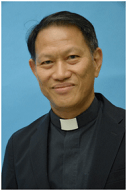 |
||
|
|
|
Events & News Archive
|
Habakkuk: The Pitfalls of Fatalism and Triumphalism
The recent tragic incident of a USA Pastor who defiantly held church service, despite the dire warnings of the relentless coronavirus pandemic scourge sweeping the land. The pastor succumbed to his fatal choice, subsequently. A stark reminder of the danger of spiritual arrogance and presumption. In his last appearance, he boldly declared, "I firmly believe that God is larger than this dreaded virus. You can quote me on that," he said and repeated it a second time amid sounds of hand clapping, claiming, "people are healed" in his church. Happily announcing he was being "controversial" by being "in violation" of safety protocols to "way more than 10 people" at the church — he vowed adamantly to keep it open, come what may, "unless I'm in jail or the hospital, for I am essential," adding, "I'm a preacher - I talk to God!" What parallels can we draw from Habakkuk concerning navigating between presumption and paralysis? Habakkuk was complaining about the state of God's delays and slowness in bringing justice and judgement. He learnt from Nahum that judgement is inevitable but what puzzled Habakkuk's expectation is God's seemingly indifference in the face of violence and injustice. This apparently "3 mile-per-hour" God frustrates many who are eager to see divine intervention and justice prevails, evidently.
But God's answer was nothing that Habakkuk had envisaged. In fact, it left him even more perplexed and disturbed.
That God would use the wicked and cruel Babylonians to execute justice on His chosen people was totally shocking and unacceptable to Habakkuk's sense of rightness and justice. How can the good, holy and pure God use evil to accomplish his purposes? Habakkuk was dumbfounded and troubled. The only consolation that Habakkuk received was God's promise that He will also punish the Babylonians in His time. What is important for us to learn from Habakkuk at this time of global pandemic and unimaginable suffering is his reply and response to God in Chapter 3;
Habakkuk kept in perfect tension the truths of judgment and mercy, without swinging into either position, one of despondent resignation or distorted triumphalism. These twin errors can throw Christians into a state of hopeless indifference that we are totally helpless or into "triumphalistic forgetfulness that we are dust". Triumphalism is the dangerous premise that God will always act on our behalf and protect us from all calamities and disasters, if only we ask. It is rooted in the faulty mindset of "over-realized eschatology", that wrongly believes in the total fulfilment of God's promises here and now. In other words, it leads down the slippery path of claiming and demanding more than what God has promised, whether it is in the area of protection, healing or prosperity. It breeds the deadly attitude of entitlement, that makes God obligated to bless and keep us every time we expect him to. There are promises of God that are yet to be fulfilled, because we are living in the "in-between" of Christ first and second coming. So Habakkuk refused to slip into this kind of faulty triumphalistic mode of thinking. But neither did he fall into the opposite error of helpless despair in the face of the coming judgement. He learnt to embrace the unavoidable judgement that must come on God's people and the Babylonians, ultimately. But his acceptance of God's sovereign act of justice did not paralyze him into hopeless defeatism or miserable pessimism. He refused to resign to "fate" or fatalism. He still hoped in God's mercy and believed in the power of prayer, as he pleaded for God's heart and hand of mercy to act. God's reply to Habakkuk's complaint in chapter 2, brings us to the crux of the Christian's journey;
The way of faith require us to trust God absolutely in the way He chooses to act. The path of faith-filled discipleship also calls us to prayerful engagement and action to change the ways things are. We don't sit idly by and do nothing to alleviate pain and sufferings. We do all we can to bring health and healing through the latest medical advances, we seek to restore broken lives through holistic counselling and therapies, we care for the homeless. We can make a difference by God's grace as we humbly plead for God's mercy in the midst of judgement. In May 1780, an amazing thing happened in New England (USA). Without warning and for no known reason, the skies became dark. There was total chaos and pandemonium. People gave up all their secular duties and went into prayer and doing good because they thought the end of the world has come and with it, the final Day of Judgement. They see the darkness as a sign of God's wrath. The legislature of the State of Connecticut, USA was in session at the time. When in the middle of the day, the skies began to darken, there was a request to adjourn the meeting. Only one man in the Legislature did not agree. He stood up and said:
So in this difficult and anguish time of global pandemic, let's not give in to despair. Nonetheless, let's be filled with hope and be found praying and working to bring blessings and change to our community...together in Christ.
|
|
|
Copyright © 2024 The Presbyterian Church in Singapore. All rights reserved. |
